Uncategorized
-
 Environment
EnvironmentHow to build better ice towers for drinking water and irrigation
“Ice stupas” emerged in 2014 as a way to cope with climate change shrinking glaciers. Automation could help improve the cones’ construction.
By Nikk Ogasa -
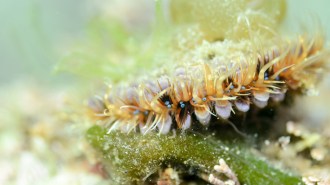 Animals
AnimalsEd Yong’s ‘An Immense World’ reveals how animals perceive the world
The book showcases the diverse sensory abilities of other animals and how their view of the world is different from our own.
-
 Psychology
PsychologyThe idea that many people grow following trauma may be a myth
Studies of posttraumatic growth are fundamentally flawed and can contribute to toxic cultural narratives, researchers say.
By Sujata Gupta -
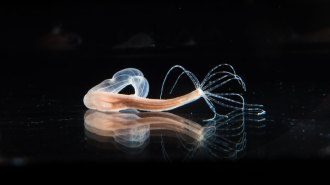 Life
LifeHere’s how sea anemones launch their venomous stingers
Starlet sea anemones use speedy projectiles to sting predators and prey. New images capture a detailed look at these weapons in action.
By Meghan Rosen -
 Quantum Physics
Quantum PhysicsAliens could send quantum messages to Earth, calculations suggest
Scientists are developing quantum communications networks on Earth. Aliens, if they exist, could be going further.
-
 Health & Medicine
Health & MedicineHow scientists are shifting their search for links between diet and dementia
Studies of food’s impact on Alzheimer’s disease and dementia are hampered by complexity. Scientists hope new research approaches prove more fruitful.
-
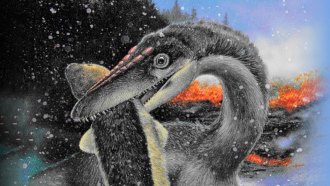 Paleontology
PaleontologyFeathers may have helped dinosaurs survive the Triassic mass extinction
New data show that dinosaurs were able to weather freezing conditions about 202 million years ago, probably thanks to warm feathery coats.
-
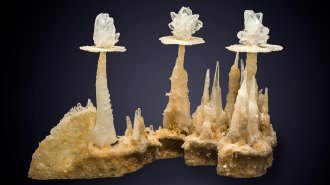 Planetary Science
Planetary ScienceA new look at the ‘mineral kingdom’ may transform how we search for life
A new census of Earth’s crystal past hints that life may have begun earlier than expected, and could be a tool to look for water and life elsewhere.
By Asa Stahl -
 Earth
Earth50 years ago, a new theory of Earth’s core began solidifying
In 1972, scientists proposed that Earth’s core formed as the planet came together. Fifty years later, that theory is generally accepted, though many mysteries about the core remain.
By Nikk Ogasa -
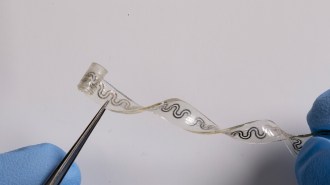 Health & Medicine
Health & MedicineThis soft, electronic ‘nerve cooler’ could be a new way to relieve pain
A tiny electronic device implanted in the body generates targeted pain relief by cooling off nerves, experiments in rats suggest.
By Meghan Rosen -
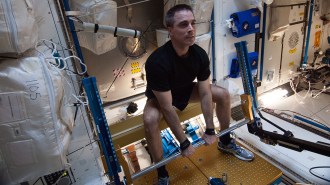 Space
SpaceSix months in space leads to a decade’s worth of long-term bone loss
Even after a year of recovery in Earth’s gravity, astronauts who’d been in space six months or more still had bone loss equal to a decade of aging.
By Liz Kruesi -
 Health & Medicine
Health & MedicineNew COVID-19 boosters could contain bits of the omicron variant
The omicron variant is different enough from the original version to require an update to COVID-19 vaccines, experts say.